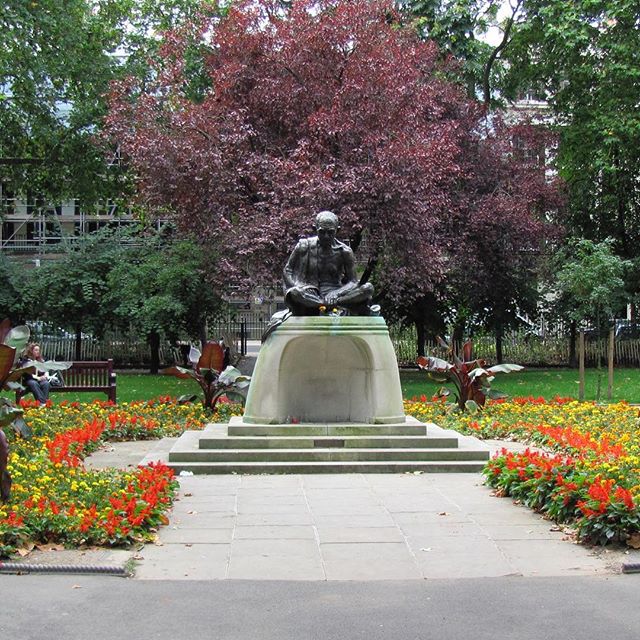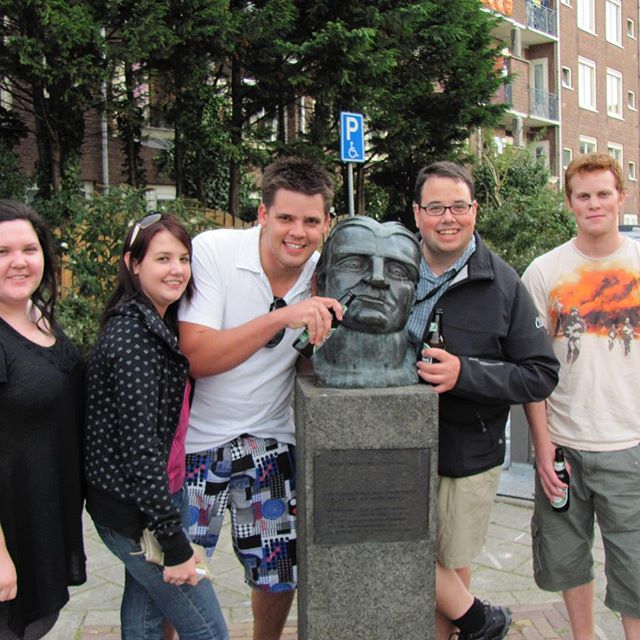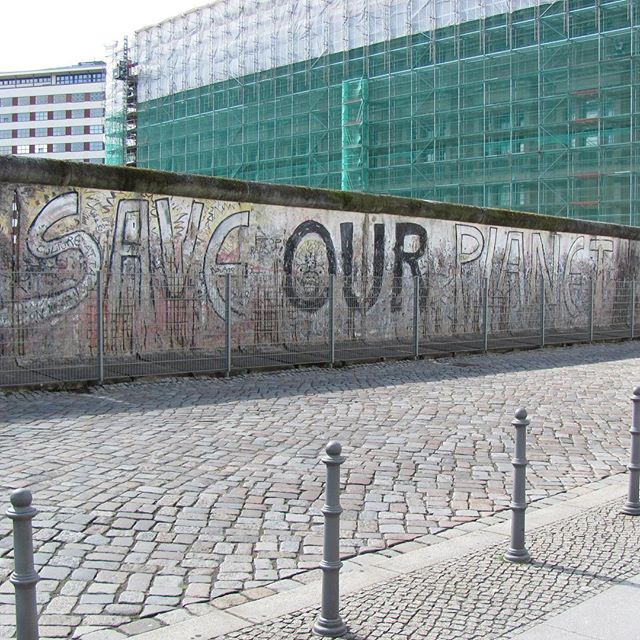Europe
-
London to Amsterdam
-
Hopfgarten im Brixental
-
München: A Video Slideshow
-
The Times They Are A Changin’
A few year’s back I got reconnected to a classic piece of music; Bob Dylan’s “The Times They Are A Changin’”. Back then was in March 2005. I was a young political supporter taking by first trip by train to Montréal, for the 1st Conservative Party of Canada policy and constitution convention.
Back then I thought we were doing something new a great. The vision of make a new party from scratch. Also, strengthening up the constitution to make it more fair and accountable.
Fast forward to now six years later, and we are back to the corruption as before but the song is developing new meaning. With recent events that started in Egypt and Tunisia we are seeing once more that The Times They Are A Changin’. In hindsight, it appears that change actually happen quite rapidly.
Now that it spreads fast people can compare this turning point in history to the storming Bastille. Where people’s choice takes forefront to prolonged oppression. But of greater concern is that at this point in History the current super-power the United States turns out to be broke, and not exactly globally well liked. Compare them to the Hapsburg Dynasty of Austria that controlled much of Europe at the time of the Bastille.
The French king at that time was completely unaware of the state of his people like leaders today in Egypt, Bahrain, and Libya. One only has to visit Luzern in Switzerland to see the most moving pieces of artwork in all Europe to see this was true. The only protection of a ruler be it King, Sultan, President; is who the Armed Forces supports, in France and now Egypt to military supported to people.
As history goes the Bastille event results in Napoleon, where the Hapsburgs end up dead and everything changes. In the 2010’s can the United States survive or will we see that nothing is safe as The Times They Are A Changin’.
-
Venizia: Video Slide Show
In the spirit of St. Valentine’s Day, why not a video of the romantic city of Venice, Italy.
-
Roma: Video Slideshow
-

IG: Europe Trip 2010

Fun fact I’ve only been in Saint John on this date 26 of the last 35 years. The ones in YFC, LHR, FCO, and AMS are the ones I remember best. 
Oktoberfest be like Where’s Waldo/Where’s Wally? #noregrets 
One of my favourite Contiki memories. #drinkupstatue #eurotrip2010 #contiki #noregrets 
This photo was from September 16, 2010. The 1st time I ever seen this legendary wall. As of today February 5, 2017 this wall has been down as long as it was up. #bringdownthewall #berlinwall
-
Day 2: London to Amsterdan
So today has been freaking crazy. I woke up this morning pumped and excited to start the journey. I had a shower. The only reason I mention it was the fact that the hot water was broken and would not turn off, leaving me with a steam room.
Then I caught the bus to the ferry in Dover. The three most notable thing about Dover was the castle on the hill, that I missed a good 35sec window to get a picture of. Second was the famous White Cliffs.
I always thought of the white cliffs as a tourist trap like the reversing falls but it was actually unbelievably amazing like seeing the Statue of Liberty for the first time.
The third amazing thing was this is where I learn that people actually pay for packets of ketchup. Later on I came to a McDonalds in Belgium or the Netherlands (it was near the boarder) that had a guy taking payment for the public washroom. Now I am in Amsterdam. This city is awesome just walked down the street drinking a Heineken. Beer is actually cheeper here than water.
Also avoid the Greek Mac at McDonalds it is really crap.
-
It all starts here
On the Contilki website it lists the travel from Canada day as day 1. As such I will start my travel log with today.
So this morning I started packing and then when fitting stuff in the suitcase I realized 2 things. 1. I have never packed myself for a 3 week trip before. 2. There is no way this is all going to fit. (possible 3. I should not have procrastinated it to 1 hour before having to call a taxi to the airport.)
Well then next, I called a taxi to the airport. As the taxi arrived I realized I was missing my shirt and belt and did not have everything 100% packed. It was a quick ride to the airport except we hit a piece of firewood on Loch Lomond Rd. near Lakewood. (I wonder if it is still there?)
Then I flew to Toronto, I love the seseme seed dessert things that Air Canada Jazz serves. Then I headed downtown for a bit. I ran into 2 types of crowds the September 11th “educators” and movie fans. (I love movies)
Then after hanging around 10 Dundas East and the Eaton Center , I headed back on the TTC to Pearson where I am typing this now waiting for the boarding call that is now 17 minutes late. TTYL.
-
Travels and planning
As we progress into the year 2010, the only New Year’s resolution that I haven’t broken yet is my vow to only see 100 movies in the theatre this year (yet) I’m currently at number 10 as we speak, and I have my annual Toronto trip ahead of me next month, and the beautiful AMC Theatre on Dundas Square.
While on the topic of travels, my first ever passport arrived by courier two weeks ago. I can now leave the country again and am so excited about the upcoming plans. Before I announce where I must point out that despite my love for History in university non-Canadian History seemed somewhat less interesting. The more I reflect on the topic, it may be just that it seems so distant, therefore why not going to see it in person. This is where I announce that in September I am travelling to Europe. I’ve decided to go on a guided tour with Contiki Tours. Now I just have to decide on the exact date and trip. Currently, I am leaning to the European Whirl from September 11th – 30th, but that may change after discussing with a Travel agent.
If you notice this is the first post in the new Travel category, this will become my Travelogue however you don’t have to wait until September, next up next month is Toronto.
-
The Future
Last weekend I received my LSAT score back and it was not what I had expected. It got me thinking about what I really like doing and to a greater extent what I want to do.
Lately I have been obsessed with words of the day on various online dictionaries and one of my favourites Wiktionary had the word “tranquil” on Saturday when I first opened by LSAT score e-mail. It became a matter if irony of that words full definition in relation to the experiences of the weekend.
Wiktionary defines it as “Free from emotional or mental disturbance.” which has firmly been at odds with my passions, in fact I have had to turn down many paths to make this transition fit. Paths that would have led more to the path that destiny seems to have written.
In the class Modern Europe History: Renaissance to the French Revolution one of the main figures in Protestant Reformation is John Calvin. John believes that our salvation or destiny is predetermined to the extent that our actions cannot make a difference and that we can cannot fight nature. Which is interesting with tranquil or brought further tranquility the calm inspired by nature, can further derive that by fighting nature will prove fatal.It brings us all to finding a balance or equilibrium in our path. Economics also agrees greatly with this matter. When Dr. Young C. Jing started the first class of Intermediate Macroeconomics, it was an example of the Marginal Costs and benefits of going to School at a younger age, which is a surreal example if the way things are at with my life at this moment in time.
-
Mahatma Gandhi
Mahatma Gandhi was born on October 2nd, 1869, in the Kathiawar Peninsula. He was born into the second lowest Hindu caste, the Vaisya. Gandhi’s father and grandfather had prime ministers of their principalities, which made their family although lower in class very prominent and well-respected. He was expected to follow his family tradition of public service; so, he went to London, UK, in 1888 to study law.
When arrived back in India he failed as a barrister in both Bombay and Rajkot. Gandhi was an extremely shy person. He later gained work as a legal advisor for the ruling prince of Pomander. He decided that public service was not for him and received a job to look after the legal affairs of the Dada Abdulla & Co. in South Africa.
He stayed in South Africa from 1893 until 1914. While in South Africa Gandhi he had faced much embarrassment. One of these times was while he was on a train to Durban he was asked to leave his seat in first class and move to the baggage compartment, he did not comply and instead left the train. Gandhi was opposed to this treatment and got the South African Indians together to offer more resistance. Gandhi was the founder of modern Satyagraha, which he put together with trial and error and his Hindu teachings. Gandhi was upset over various issues such as registration, prohibition of moving to other provinces, unfair taxes, and recognition of only Christian marriages.
In 1908, Gandhi got together over two thousand Indians living in South Africa to march to Johannesburg and burn their registration papers. He again in 1913 led a group of several thousand Indians to move into another province. These protests led to the Indian Relief Act of July 1914.
In January 1915, Gandhi decided to return to India and apply his methods in British India. Gandhi did not want to simply oust the British but keep up the sense of justice enforced by the British, by the means of peaceful liberation from England. Gandhi was a conditional nationalist that believed in independence but only under certain conditions. He was at times not well liked because he, for instance, recruited Indian Soldiers for the British during the Great War. Gandhi believed that non-violence is preferred to violence only to prove the moral strength and inner conviction not as a sign of moral weakness. He had done the recruiting because he felt his fellow citizens agreed with him because they were morally weak, and he felt that surrender was worst than the violence.
Gandhi had set up religious retreats throughout India to help prepare his followers for their major task, the transition to non-violence. One of these in Sabarmati, called Satyagraha Ashram, was Mahatma Gandhi’s home for over sixteen years. During those years, he gained the support of the locals, leaders, and many others by campaigning for education, sanitation, and injustices. This led to a public outcall for independence.
Gandhi in 1929 called Lord Irwin for the independence of India within one year. Gandhi then decided to speed up emancipation by opposing the Salt Act. It had led to the largest display of non-violence demonstrations known to date. This was followed by massive displays of civil disobedience and non-cooperation. The most notable was a march of over 200 miles from Ahmedabad to Dandi in May 1930, to try to take over the government salt depot at Dharshana. Gandhi was arrested before this incident.
From 1934 until 1939 Gandhi, spend most of his time supporting issues such as basic education, language reform, and natural remedies. In 1939, Gandhi requested that Britain to leave India out of their war in Europe and allow India to protect themselves against the oncoming of the Japanese from the east. He felt that this would not affect the outcome of the war in Europe, and he threatened them with more civil disobedience. Britain’s response was to have him and other leaders arrested. This led to massive violent riots throughout India. He was finally released in May of 1944, three months after his wife’s death.
In his efforts, he tried uniting the Moslems and the Hindu people to help gain independence. On August 15, 1947, India finally gained independence although it was divided into two countries India and Pakistan.
He then spent the rest of his life travelling, trying to unite the Moslem and Hindu peoples, and spread the word on Satyagraha. This had caused people to conspire to kill Gandhi. Finally, on January 30, 1948, Mahatma Gandhi was assassinated at age 78, on his way to prayers.
During his times he referred to himself as a soldier of peace as in this famous speech he gave, “I regard myself as a soldier, though a soldier of peace. I know the value of discipline and truth. I must ask you to believe me when I say, that I have never made a statement of this description. That the merit of India, if it became necessary, would resort to violence.” During the same time the most brilliant man in the worlds modern history, Albert Einstein supported Gandhi’s views by saying, “I believe, that Gandhi’s views were the most enlightened of all the political mind of our time. We should strive to do things in his spirit, not to use violence in fighting for all cause. But by non-participation in anything, you believe is evil.”
Categories
- Covered Bridges 2020 (58)
- General (2,479)
- Instagram (178)
- Living With GBS (34)
- Portfolio (26)
- SnapShots (60)
- Travel (87)
Tags
All the Covered Bridges Awards CBC Christmas Comedy Comments Contiki Covered Bridge Creative Writing Election Europe Europe 2016 Facebook Food Future Gallary Goals History Hockey Instagram King's County Major Midget Regionals Montreal No Regrets Plinky Politics Restaurants Review Road Trip Rogers TV Saint Awesome Saint John Airport Saint John NB Selfie Shopping Sports Sun Trip Television Theatre Toronto University Writings Video Web WordCamp WordPress
